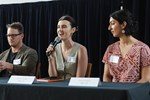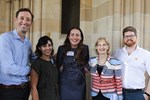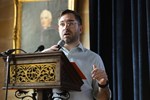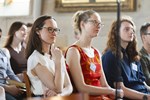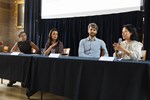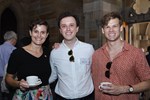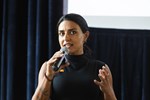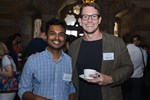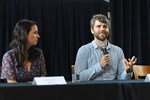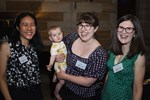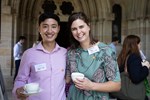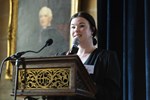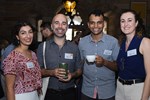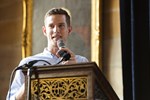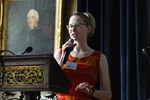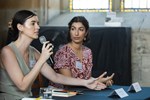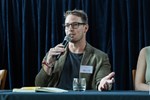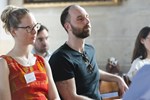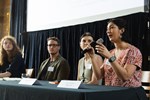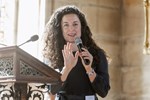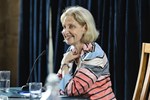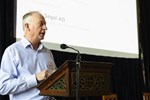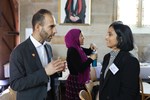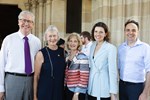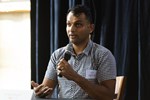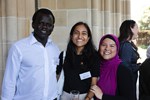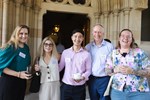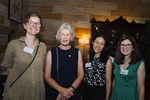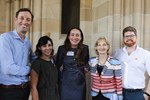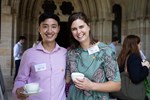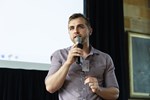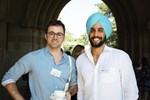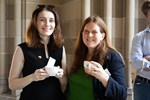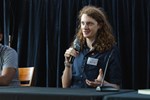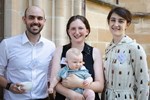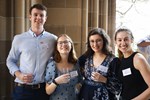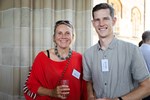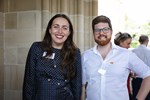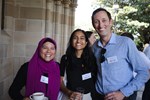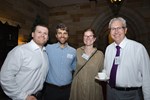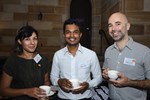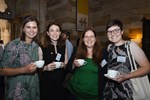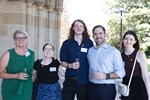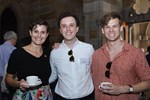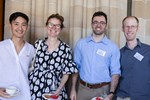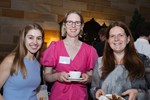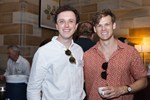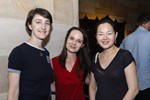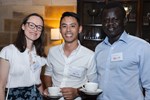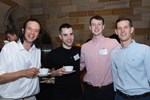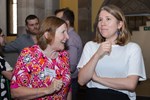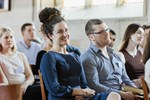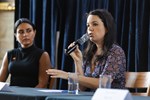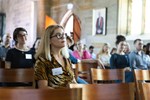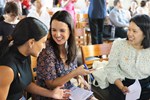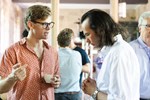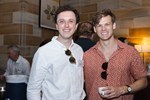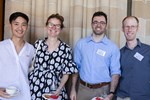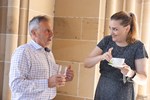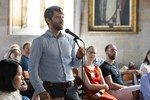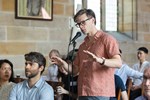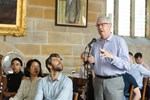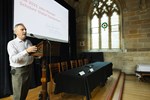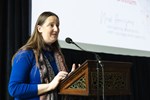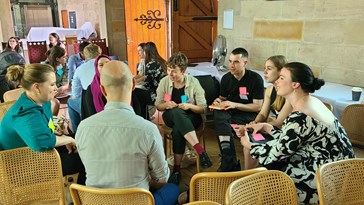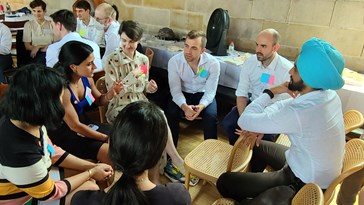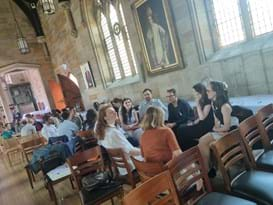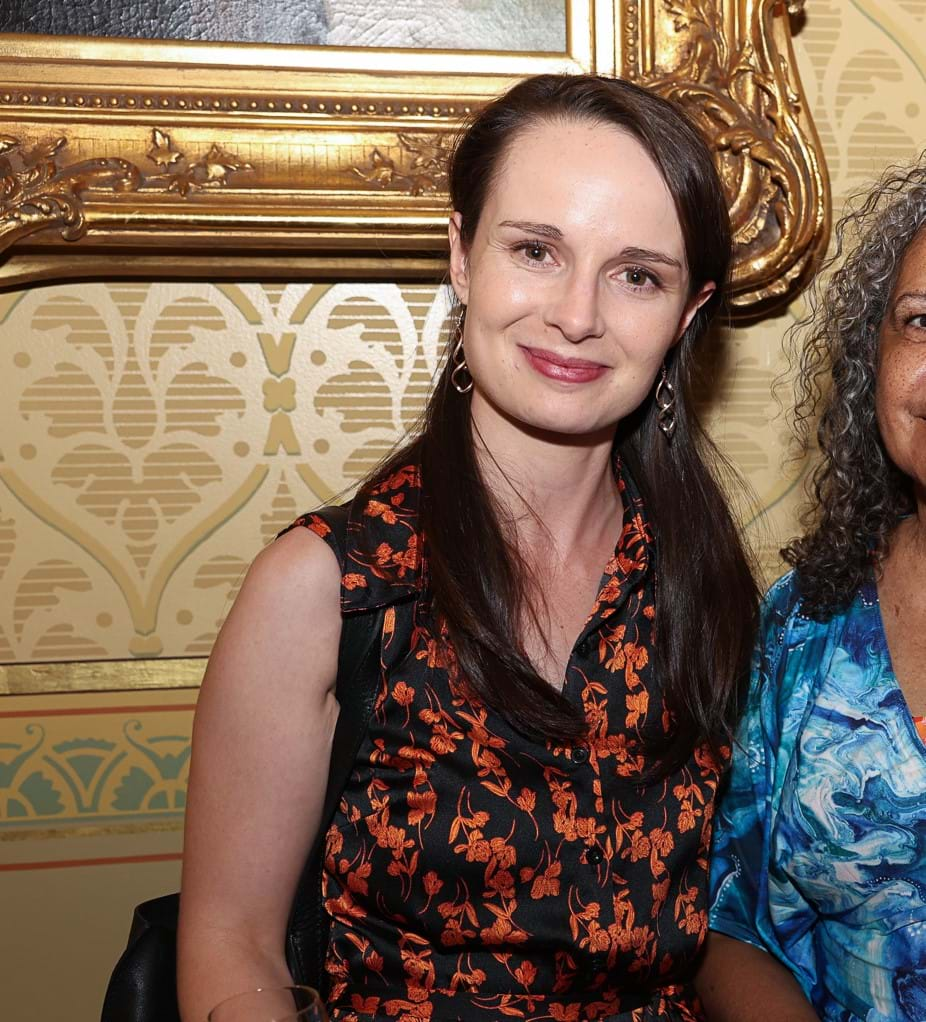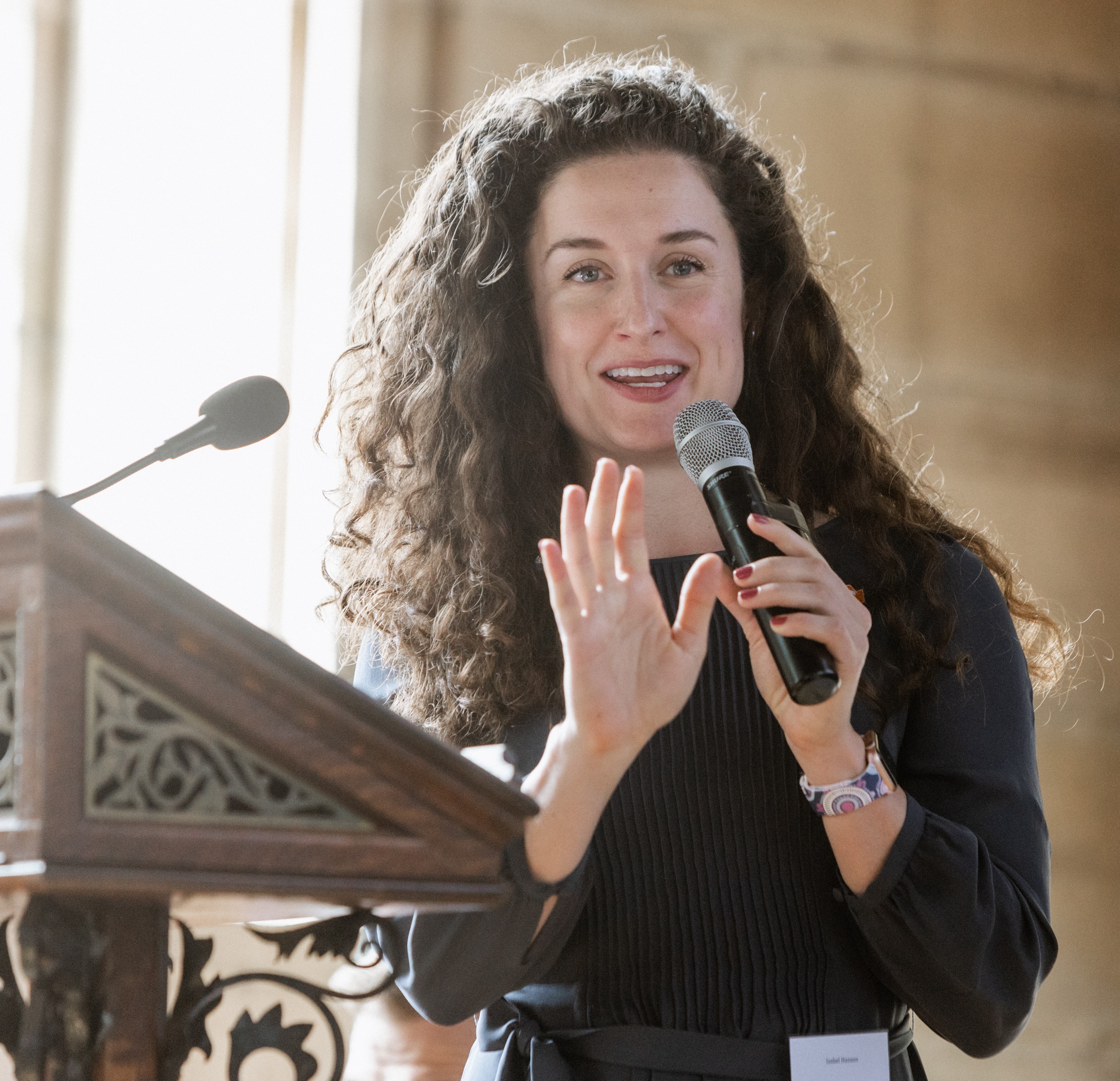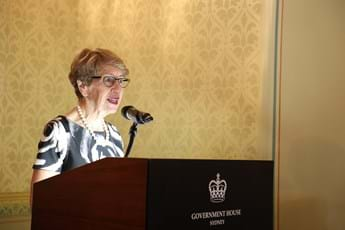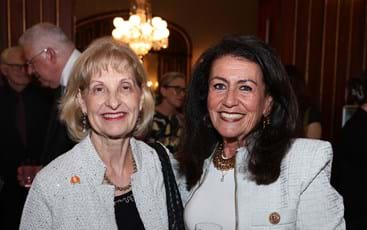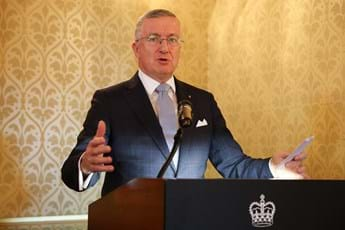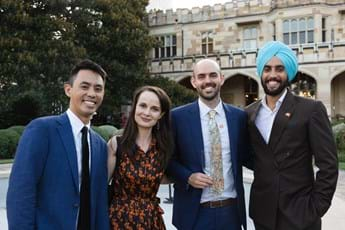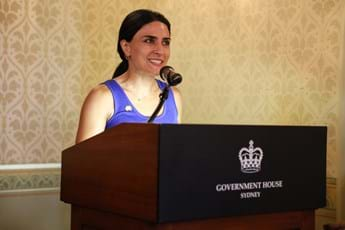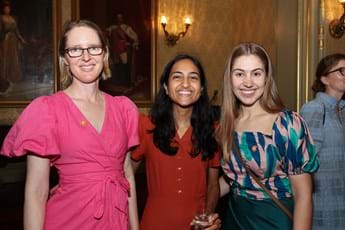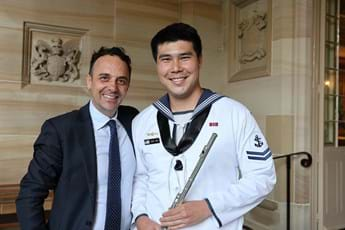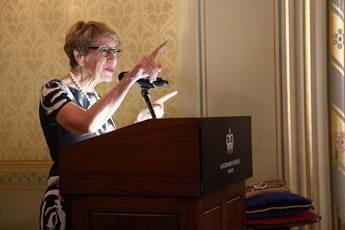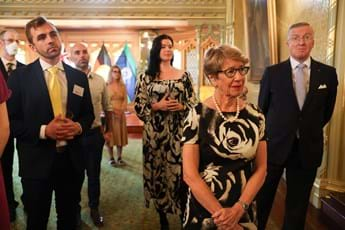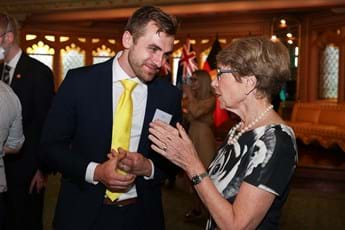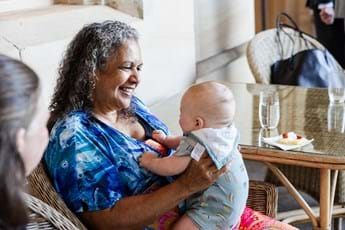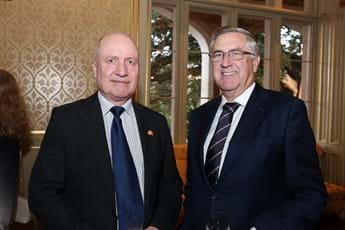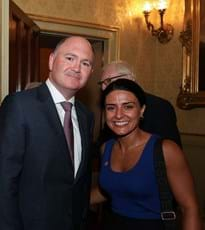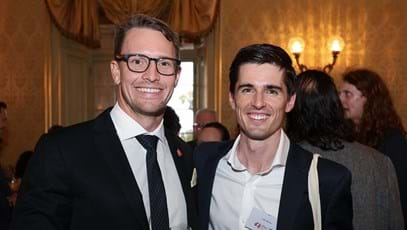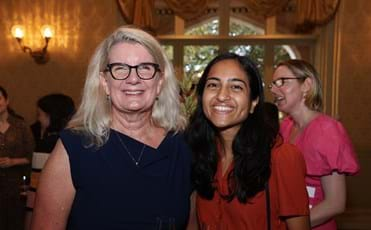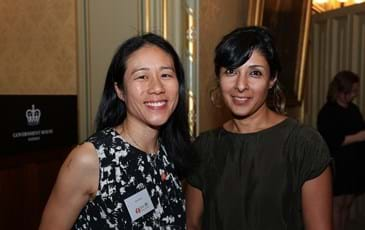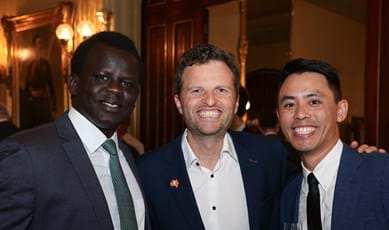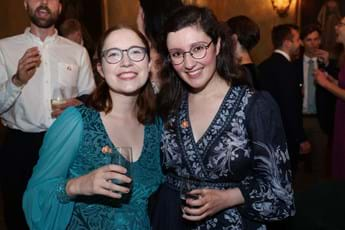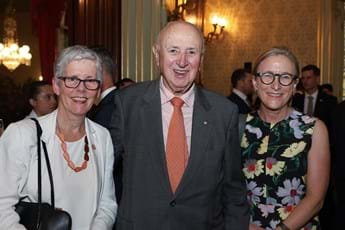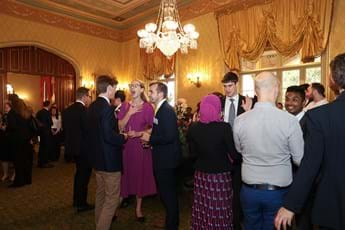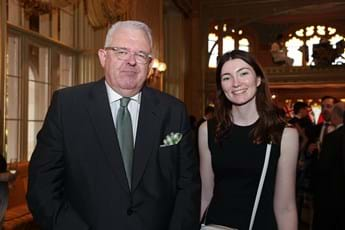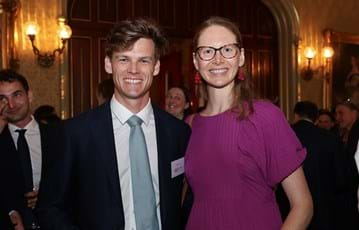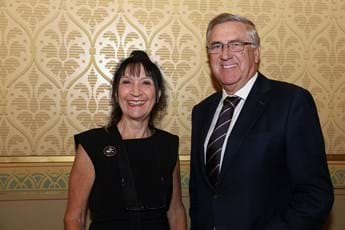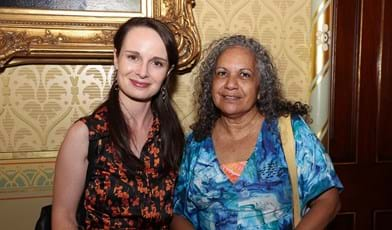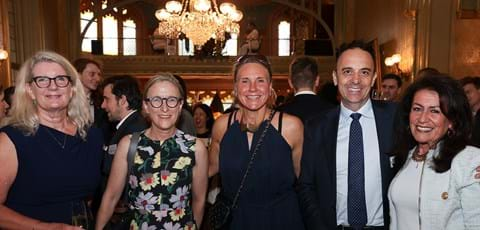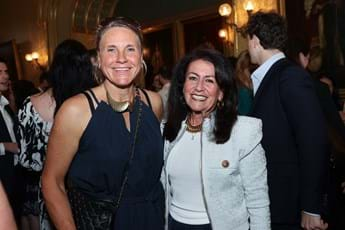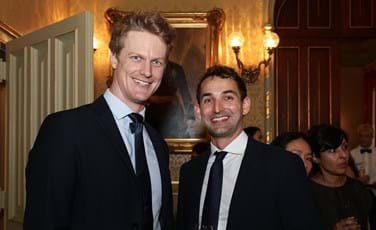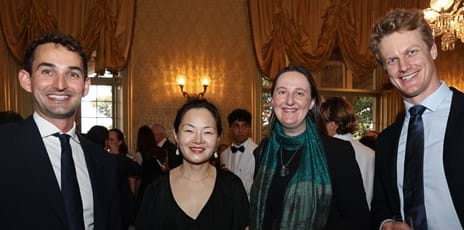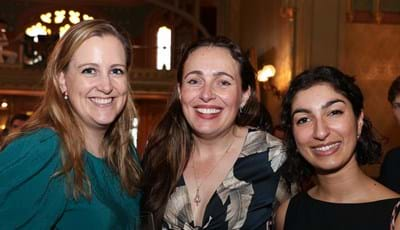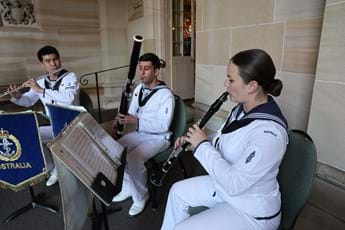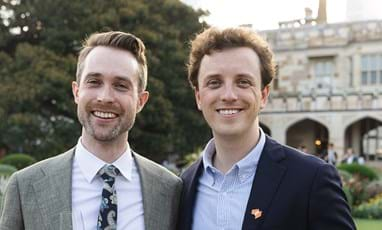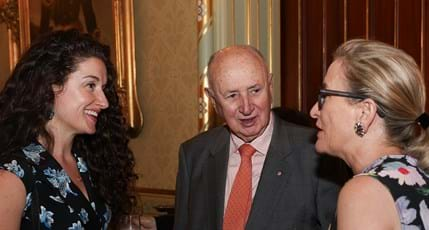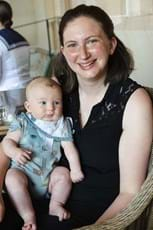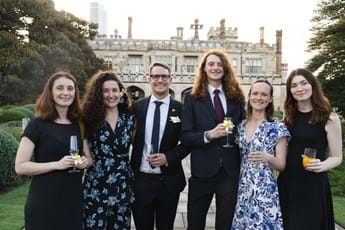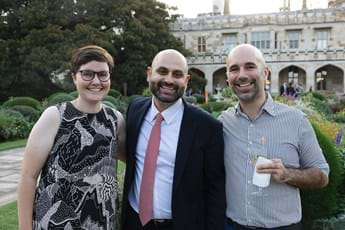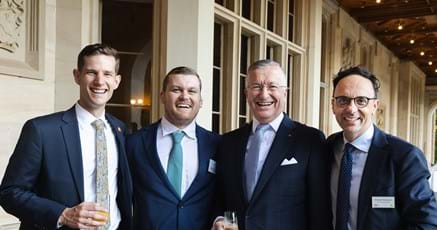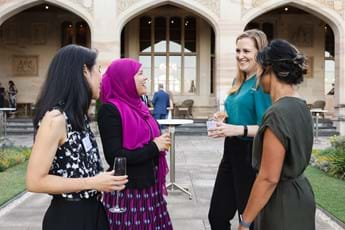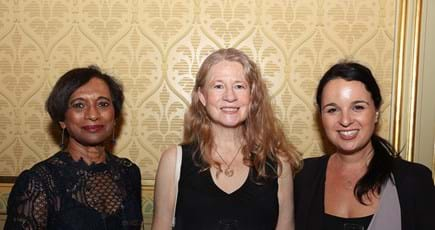The John Monash Foundation held its fifth Global Symposium in Sydney on December 11 and 12. The event attracted more than 100 Scholars, representing 40% of the entire Scholar population and featuring at least two members from each annual cohort.
Guests gathered at St John’s College in the University of Sydney, sharing an array of interactive and powerful content to both motivate and inspire their peers. The program featured three panels that included a reflection on the experiences of First Nations people in Australia, the latest innovations in healthcare, and the opportunities and challenges within entrepreneurship. In addition, there were 12 Scholar stand-up presentations which ranged across a variety of compelling topics, including the fight against malaria, the latest developments in controlling the Vagus Nerve, and Australia’s role in geo-politics.
Prominent guests from the Sydney leadership community delivered insightful keynote speeches. An opening address from Jillian Broadbent AC, Allegra Spender MP and Jillian Segal AO explored the topic of leadership with an intergenerational lens. Later in the day, the Governor of NSW, Her Excellency the Honourable Margaret Beasley AC KC, and Mr Wilson welcomed guests as they arrived at NSW Government House, reflecting on the legacy of General Sir John Monash and the continuous influence he provides today. University of Sydney Vice-Chancellor, Professor Mark Scott AO, delivered the closing speech, emphasising the importance of non-siloed problem solving as a means of overcoming today’s most complex challenges.
The symposium was an outstanding success, strengthening the Scholar and Foundation community, spurring collaborations, and laying the foundations for an impactful Leadership Academy network.
Program
This year’s program incorporated a combination of lengthier problem-solving plenary-style sessions, as well as a snappy Scholar stand up programs with the aim of bringing together diverse perspectives on leadership and maximising the involvement of participants across disciplines.
Keynote Address
Keynote speakers were former Chancellor of the University of Wollongong and leading businesswoman Jillian Broadbent AC and Member for the Electorate of Wentworth Allegra Spender MP, in conversation with Foundation Chairman Jillian Segal AO. The session provided an intergenerational dialogue on their experiences of
driving change and impact through business, governance, and policy– sharing their insights on where we can align our capabilities to address future change with courage and creativity.
Bridging the Gap: The Inherent Value of Generalist Career Paths and the Vital Role of 'Bridge Tenders'
Dr Isabel Hanson (2022) and Dr Maja Arsic (2017) delivered an enlightening session where they explored the significance of generalist career paths and the pivotal role of 'bridge tenders' in connecting diverse fields. This presentation delved into why embracing a broader skillset is as indispensable and impactful as specialised expertise, shedding light on the symbiotic relationship between generalism and specialisation in fostering innovation and driving career success.
New Horizons: First Nation Perspectives
This session with Dr Brett Shannon (2021), Noah Bedford (2024) and Sylvia Lockyer (2010) explored the perspectives and experiences of First Nations people in Australia, including some of the social, cultural and political barriers that impact community development and wellbeing.
New Horizons: Future of Health
With Dr Sean Carter (2022), Rebecca Keeley (2022), Alyssa Pradhan (2024), Darcy Dunn-Lawless (2022), Dr Ashray Gunjur (2021) and Dr Isabel Hanson (2022). In this session, John Monash Scholars from different health perspectives explored the profound impact of digital health and artificial intelligence on the future of healthcare. The conversation dissected the unprecedented opportunities and challenges arising from these technologies and imagined the potentially transformative influence on patient care.
New Horizons: Business as a Force for Good
With Sarah Lux-Lee (2014), Stephanie Pow (2013), Ryan Carters (2018) and May Samali (2014).
As John Monash Scholars, it’s not every day we have the opportunity to discuss how to lead through entrepreneurship. In this interactive panel, global entrepreneurs shared their various journeys, experiences and insights as solo founders. In exploring business as a powerful tool for leading positive change, panellists reflected on the beginnings of startup life, challenges faced in launching and scaling a business, and valuable lessons learnt. The conversation included a discussion on topics, ranging from women in business, workplace belonging, and the impact of
business on community and public policy.
New Horizons: Leading through influence and leveraging your narrative to create authentic change
In this session, Robert Lean (2020) equipped Scholars with the ability to leverage their own narrative to drive authentic change. By framing and effectively communicating ideas, Scholars learned how to enhance their persuasiveness and drive positive behaviour change. As a network of leaders, these skills are critical for establishing credibility, building trust and inspiring community response.
Scholar Stand Up Program
Australia's green steel opportunity, with Alli Devlin (2020)
Steel – an alloy of iron, carbon and other elements – is a critical material in the construction, automotive, aviation, and defence industries, and essential in the clean-energy transition to produce wind turbines, electric vehicles and zero-emission buildings. However, 2.6 Gt CO2 are emitted annually by the steel sector, accounting for 8% of
global energy-related GHG emissions (IEA, 2020). To decarbonise by 2050, the emission intensity of steel must reduce from the current global average of 1.9t CO2/t steel (World Steel Association, 2020) to near zero while meeting the forecasted increase in global production levels from 1.9 billion tonnes a year (World Steel Association, 2022), to 2.6 billion tonnes a year (Bataille et al., 2021). Alli will discuss how this seemingly impossible challenge is, in fact, an opportunity for deep industrial reform and enhanced supply chain strategy.
Concussion: No risk-free choices in life, with Dr Matthew Lennon (2020)
Traumatic Brain Injuries (TBI) are a global problem affecting millions worldwide. TBI accounts for 15% of the burden of dementia and is becoming more of an international focus as further cases arise in global sporting stars. Matthew has been publishing work as part of the PROTECT study examining the largest cohort (n=15,764) ever to assess the long-
term cognitive outcomes of TBI. He will discuss the specific impact of sports-related TBI, including its impact on attention and executive function.
Australia's energy future: A framework for systems planning, with Nicholas Maurer (2023)
Australia is currently making decisions about our energy future. Not only are we deciding on the types of resources to build, but how the system ought to be structured. Unfortunately, the public discourse on energy remains deeply divided. To aid the decision-making process, a more rigorous framework for energy system planning — particularly the grid — is required. In this talk, Nicholas discussed the efforts to create such a framework and show that, with a set of simplified levers, one can determine which system configurations are technically and economically possible and which are not.
Sticks and stones and words: the power of language in conflict, with Eva Mackinley (2020)
The pen is not just mightier – it can also be a precursor to the sword. Eva’s Masters research has centred on the relationship between language and violence, especially in cases of intractable conflict and mass atrocity. She shared some of her key findings, including how influential messages can lower barriers to violence. Eva also looked at
some of the exciting work led by the Dangerous Speech Project and its research into identifying and countering instances of dangerous speech.
More AI won't fix AI, so what can? with Dr Jonathan K. Kummerfeld (2010)
Artificial intelligence models in general, and Large Language Models in particular, have achieved stunning performance, but they still make mistakes, encode bias and are uninterpretable. What's the solution?
Jonathan’s view is that rather than relying purely on AI, we need to develop systems that effectively combine human and AI efforts. In this talk, he will describe one example of this: a system for answering questions that allows users to feel confident the system is working as intended.
Closing the access to justice gap with low-cost legal services, with Amy Burton (2018)
Since her return to Australia, Amy has been committed to launching three low-cost legal services in Australia: Wallumatta Legal, the Accessible Justice Project and Everyday Justice. In this talk, she will reflect on this experience and the ongoing challenges in improving justice accessibility. She hopes to connect with others who have had similar experiences working in environments that face resourcing and efficiency pressures and explore opportunities for brainstorming and innovation.
The state-of-the-art in brain computer interfaces, with Ahmad Shah Idil (2018)
Five private companies are in a race to unravel the mysteries of the human brain: namely Neuralink, Blackrock, Precision Neuroscience, Paradromics, and Synchron. Propelled by substantial resources and a cadre of brilliant researchers, there's a tantalising prospect that one of these enterprises may soon achieve the holy grail: establishing high- bandwidth, safe and bidirectional brain-computer communication.
Ahmad shared the awe-inspiring scientific developments of 2023, the most exciting year yet in neurotechnology.
Re-politicising Australian aid in Southeast Asia, with Dustin Barter (2019)
Despite decades of assistance to support development across Southeast Asia, Australia’s aid program continues to search for relevance and purpose. Regardless of the government, Australian aid has trended away from contentious issues to be increasingly concentrated on economic endeavours that are purported to advance our self-interest in the region. This presentation argued for a re-politicisation of Australia’s aid program to better support nascent and threatened civil society across Southeast Asia, both formal and informal actors.
Is gig work bad for your health? With Dr Brett Shannon (2021)
In the US, motor vehicle crashes are the leading cause of work-related death. In Q4 of 2021, Uber reported an average of 19.5 million trips a day worldwide, and Lyft reported 18.7 million active riders. The increasing popularity of the competitive rideshare market and the lack of oversight over workforce health and safety blunts understanding of the current occupational hazards and associated risks. Brett shared the work he is undertaking with collaborative grant partner Dr Johnathon Ehsani, supporting the development of multi-level interventions for addressing the safety concerns of rideshare drivers.
The mathematics of developing drugs to prevent malaria, with Lydia Braunack-Mayer (2015)
Malaria is a serious challenge for global health and affects more than 200 million people worldwide, causing more than 600,000 deaths each year. There is a growing concern about the potential for resistance to critical drugs and
insecticides used to prevent its spread. With her research team at the Swiss Tropical and Public Health Institute in Basel, Lydia is using mathematics and statistics to help tackle this problem. She discussed existing opportunities to
help regulators, funders, and pharmaceutical developers focus their resources, time, and effort on the drugs that are most likely to make a big difference in preventing malaria harm.
Politics, policy and activism – driving change from inside and outside the tent, with Brooke Greenwood (2020)
Is it better to influence power from inside institutions and governments, or tear down barriers to action from the outside? With Scholars choosing different pathways to achieve systematic change, Brooke will consider the value of both these advocacy approaches. Her talk encouraged Scholars to consider: ‘Can we afford to choose one over the other?’
